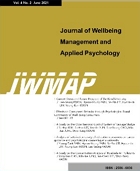- 권한신청
- E-ISSN2586-6036
- KCI
The Effects of Influencer Marketing on Brand Attitude
Lee Seung KWON (Department of Health Care Management, Catholic Kwandong University)
Abstract
This study investigates the impact of mega-influencers and micro-influencers on consumer trust, brand attitude, and purchase intention within the beauty industry. Methods: A survey of 160 adults was conducted in March 2024, analyzing responses to the influence of a beauty mega-influencer ("Isa Bae") and a micro-influencer ("Day Beauty"). Participants were surveyed online over two weeks, and the data were analyzed using statistical tools to compare the influence of both types of influencers. Results: The results indicated that mega-influencers had a more substantial effect on reliability and brand attitude compared to micro-influencers, although both types of influencers significantly influenced purchase intentions. Influencer attractiveness and expertise emerged as critical factors in shaping consumer perceptions and behaviors. Conclusion: This study provides insights into optimizing influencer marketing strategies by leveraging the distinct characteristics and scales of influencers to enhance consumer engagement and brand loyalty. The findings underscore the importance of choosing the appropriate influencer type to maximize marketing effectiveness and consumer trust in the digital marketing landscape.
- keywords
- SNS, Product purchase, Brand attitude, Marketing, Influencer
- 다운로드 수
- 조회수
- 0KCI 피인용수
- 0WOS 피인용수














